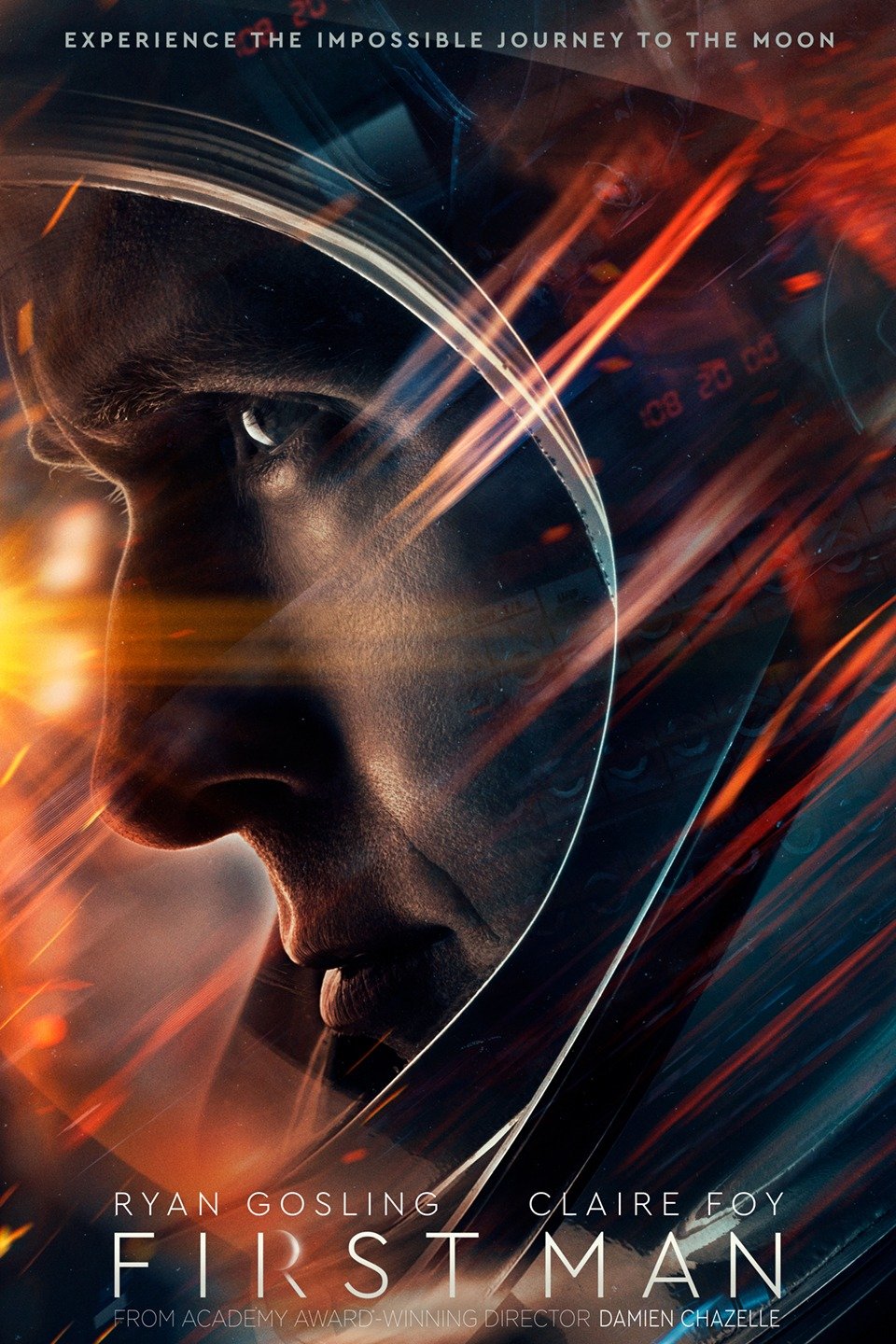
Am I the only one getting a minor chuckle out of watching a Canadian man play and American hero?
Remaining true to the ambitious nature that he seems to be building his name off of, director Damien Chazelle’s third outing in the director’s chair, depicting American Astronaut Neil Armstrong’s perspective of the space race against the Soviet Union, ending with the moon landing, forgoes the typical greatest hits nature of contemporary biopics of its nature in favor of a slickly produced and understated character study narrative that’s undeniably bold even if its admirable reach exceeds its grasp.
As per usual, Chazelle’s ability to milk humanity out of his
talented cast go miles towards building the strong backbone to the movie bolstered
by strong production values to produce his most lavishly visual feature yet.
Ryan Gosling’s portrayal of Armstrong as a man chasing a new
scientific frontier as a means of reinforcing his belief in the meaning of life
despite being surrounded by tragic death both at home and in his career field
has been gaining some Oscar buzz and while the feature as a whole can make that
seem fairly questionable, it’s not buzz that’s lacking in merit.
Gosling’s Armstrong is a man committed to a death defying
cause that has him struggling to compartmentalize his feeling to a damaging
extent and Gosling himself walks a perfect line between presenting himself as a
pleasant but hard hitting professional feeling the need to hide his hand from
the world in order to adequately perform and a man strong enough to hold
himself together despite the wear of a history defining mission clearly
impacting him.
While the stoicism seems as though it can occasionally dip
into parody territory regarding the types of roles Gosling usually takes on,
watching him uncomfortably discuss the potentially fatal outcome of his mission
with his sons as though he were poorly relaying information at a press
conference due to his own inner turmoil and seeing his gradual breakdown over
the death of his daughter at her funeral reception are nomination worthy in and
of themselves. Further attention should definitely be brought up for Claire
Foy, whose struggle as Armstrong’s wife to hold her household together despite
the turmoil that her husband struggles with is perhaps the best performance of
the movie and one that subtly hints at the collapse of their marriage as it
happened in real life.
They’re surrounded by a terrific supporting cast of
character actors that feel right at home in the mid twentieth century Vietnam
War-era America aesthetic including Shea Whigham, Corey Stoll, Jason Clarke, and
Kyle Chandler who all look like white guys that could have belonged to that
point of history in the modern day.
“First Man’s” meditation on the nature of death and the
meaning of life lends itself well to some solid drama in the first half that is
punctuated by outstanding filmmaking at play when Armstrong’s job as a NASA
pilot comes into play.
The exhilaration of the chaotic sound design and
claustrophobia of the crafts are equally awe inspiring when you get to see them
navigating the upper atmosphere of Earth and downright terrifying when things
go wrong at such high altitudes. If you’re afraid of flying and suffer from
anxiety of any sort, you may want to stay away from this movie as it is quick to
remind audiences that these men were being propelled into orbit with
protections that would be seen as woefully inadequate in today’s age of
engineering.
Carrying a clever arc about the beauty of human nature in
the face of tragedy and the terrors of the unknown conveyed through some of the
best production of the year, hands down, the first half of “First Man” works as
a brilliant and humanizing character study of a man that helped the world
aspire to new heights through the pursuit of his mission.
Despite maintaining that jaw dropping level of production
all the way up to the absolutely stunning Moon landing sequence, which is so
visually incredible that it almost justifies the cost of an IMAX ticket alone,
the strength and cohesion of that narrative does unfortunately begin to peter
out by the time of the second half.
With the most tense and visually rich set pieces looming
about, the plot definitely holds together long enough for those sequences to be
enjoyed for their excellent worth but by the time the film begins to enter the
development of the Apollo crafts, the time scale and pacing begins to quicken
to the detriment of its side characters and the a lot of the threads that fed
into the film’s self reflective nature, such as Armstrong’s daughter and his
coping with death, begin to slowly fall to the way side along with the
underlying narrative themes of the movie.
It almost feels like the film was trying to say more than it
ultimately did or wanted to but improperly budgeted its time around intricate
set pieces that needed to be included.
7 Giant Leaps out of 10
No comments:
Post a Comment